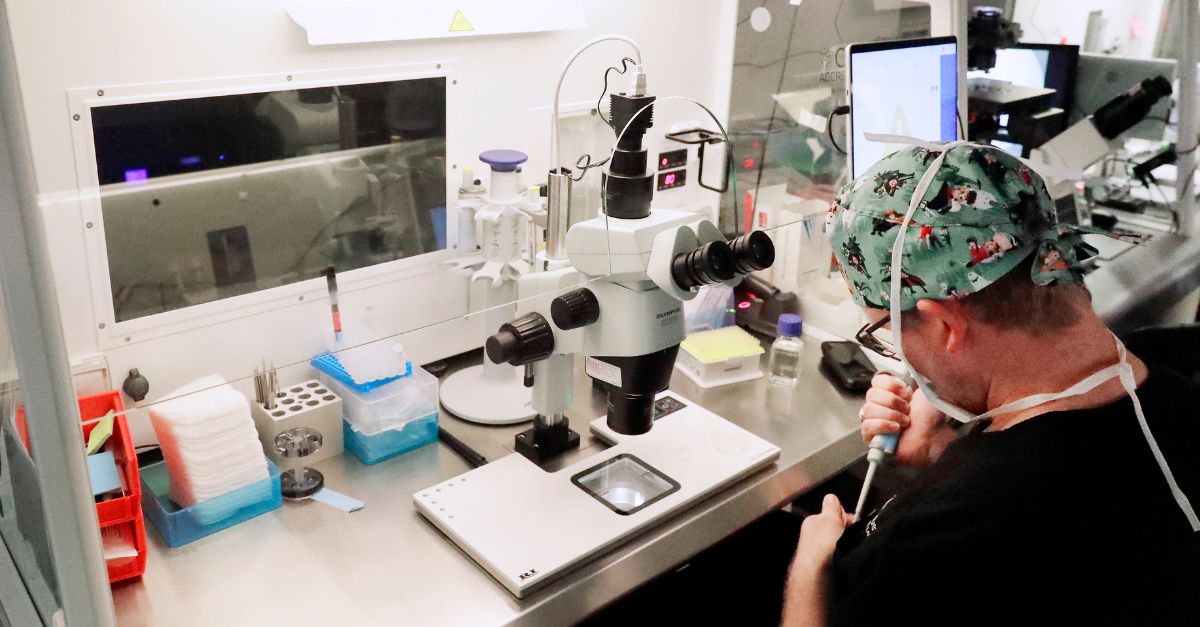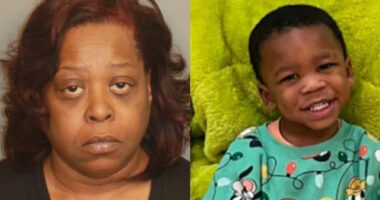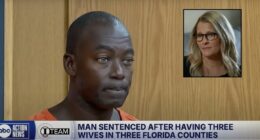
Lab staff prepares small petri dishes, each holding several 1-7 day old embryos, for cells to be extracted from each embryo to test for viability at the Aspire Houston Fertility Institute in vitro fertilization lab Tuesday, Feb. 27, 2024, in Houston. (AP Photo/Michael Wyke)
The lawsuit that led to a highly-publicized Alabama Supreme Court ruling that frozen embryos in a lab count as “minor children,” was dismissed Wednesday after plaintiffs settled their wrongful death claims against the in vitro fertilization (IVF) clinic and Mobile hospital in which the embryos were accidentally dropped on the floor.
Mobile County Circuit Court Judge Jill Parrish Phillips signed an order voluntarily dismissing the claims of James and Emily LePage and William Tripp Fonde and Caroline Fonde against the Center for Reproductive Medicine and Mobile Infirmary Association with prejudice. The order means that the plaintiffs cannot choose later to refile the action.
Three couples originally sued the clinic and hospital for negligence and wrongful death alleging that the clinic allowed a patient to wander into the embryology lab, pick up five fertilized embryos that had been stored at subzero temperatures, then drop those embryos rendering them unusable for the IVF process. The couples referred to themselves as “parents” of the embryos in their filing and alleged that their “embryonic children” “began to slowly die” after being accidentally dropped on the floor.
The third couple that began the lawsuit — Scott Aysenne and Felicia Burdick-Aysenne — did not join in the request to dismiss the lawsuit and their claims are still pending. A separate but similar lawsuit filed by Raymond Lee and Sarah Brackett over the same incident is also still pending, but those plaintiffs have asked that it be dismissed.
The case made national headlines when the conservative Alabama Supreme Court ruled 7-2 to reverse a lower-court ruling and declared that under state law, frozen embryos are children. As a result, the plaintiffs were permitted to proceed with their legal theory that dropping fertilized embryos amounted to causing wrongful death. In the court’s lengthy ruling in the plaintiffs’ favor, Justice Jay Mitchell referred to the frozen embryos as “extrauterine children” and “unborn children who are located outside of a biological uterus at the time they are killed.” Mitchell ruled that Alabama’s wrongful death law applied to “all unborn children, regardless of their location.”
Backlash over the ruling was swift and fierce. As the lone dissenting justice on the Alabama Supreme Court predicted, hospitals in Alabama began to announce that they would no longer perform IVF procedures due to the legal risks posed by the ruling.
Within weeks after the ruling, Alabama Gov. Kay Ivey (R) signed a GOP-proposed bill designed to provide protections for IVF treatments by shielding clinics and health care professions from legal risks associated with IVF care. Critics argued, however, that the legislation does not address the question of whether the Alabama Supreme Court’s ruling guarantees frozen embryos the same legal rights as other “children” under state law.
Law&Crime reached out to counsel for the plaintiffs for comment but did not receive a response.
Have a tip we should know? [email protected]







